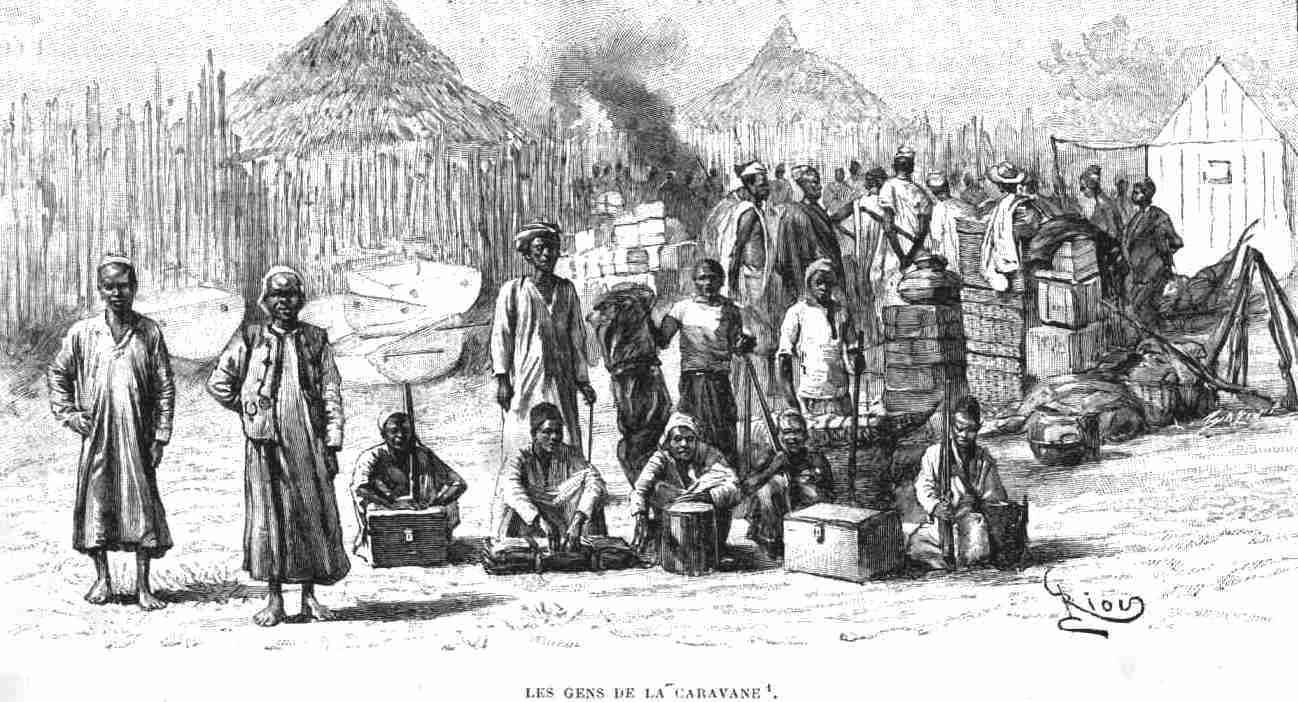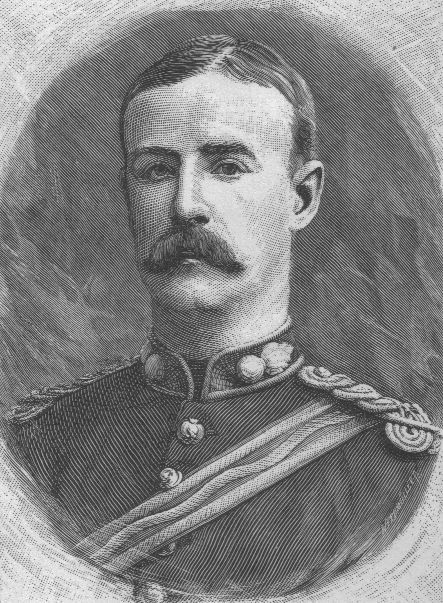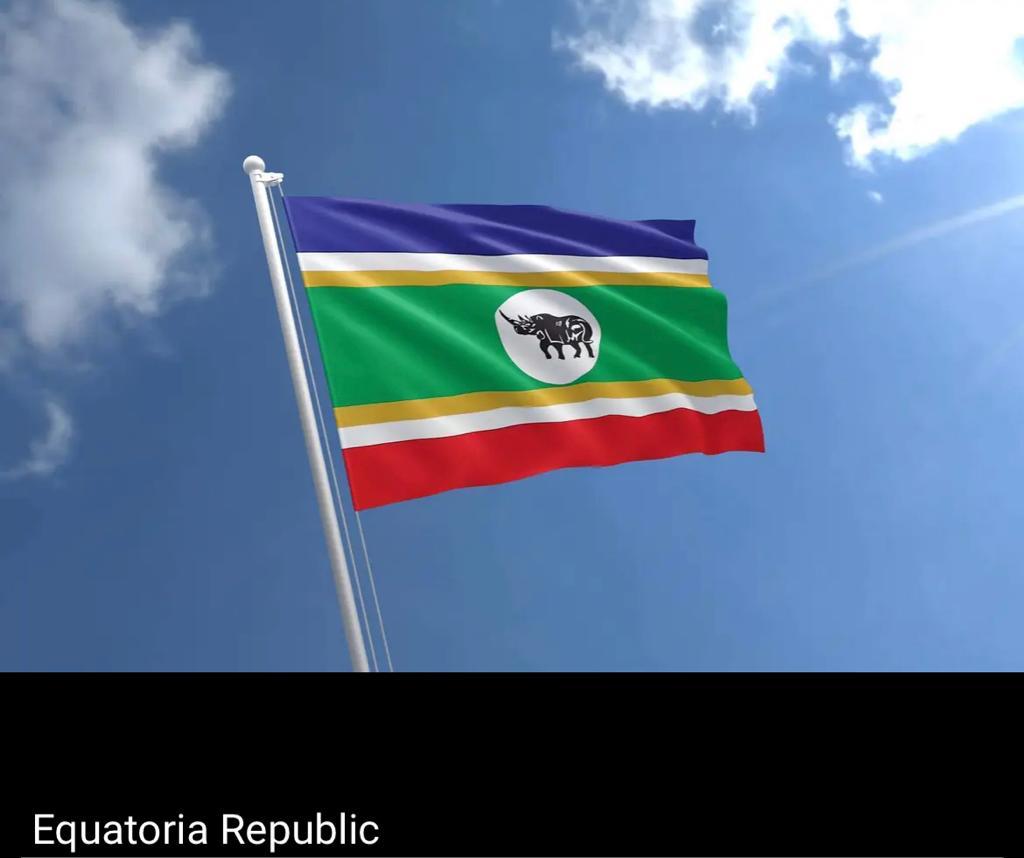|
Bunkeya
Bunkeya is a community in the Lualaba Province of the Democratic Republic of the Congo. It is located on a huge plain near the Lufira River. Before the Belgian colonial conquest, Bunkeya was the center of a major trading state under the ruler Msiri. Early history In the later 19th-century, Bunkeya was the capital of Msiri, the son of an East African trader. Msiri's father had been in the business of buying copper ore in Katanga and transporting it to the east coast of Africa for resale. As a young man Msiri remained behind in the region as his father's agent. He became leader of a group of Bayeke people, and established a state that extended from the Luapula River south to the Congo-Zambezi watershed, and from Lake Mweru in the east to the Lualaba River in the west. Based on Bunkeya, the state controlled a huge central-African trading network, mostly dealing in slaves but also in ivory, salt, copper and iron ore. Traders came to Bunkeya from the Zambezi and Congo basins, from An ... [...More Info...] [...Related Items...] OR: [Wikipedia] [Google] [Baidu] |
Stairs Expedition To Katanga
The Stairs Expedition to Katanga (1891−92), led by Captain William Stairs, was the winner in a race between two imperial powers, the British South Africa Company BSAC and the Congo Free State, to claim Katanga, a vast mineral-rich territory in Central Africa for colonization. The mission became notable when a local chief, ( Mwenda Msiri), was killed, and also for the fact that Stairs, the leader of one side, actually held a commission in the army of the other. This "scramble for Katanga" was a prime example of the colonial Scramble for Africa, and one of the most dramatic incidents of that period. Historical background On one side of the race was the Congo Free State, Belgian King Leopold II's instrument for private colonisation in Central Africa. On the other was the company chartered by the British government to make treaties with African chiefs, the BSAC of Cecil Rhodes, who mixed a determined approach to gaining mineral concessions with a vision for British i ... [...More Info...] [...Related Items...] OR: [Wikipedia] [Google] [Baidu] |
Msiri
Msiri (c. 1830 – December 20, 1891) founded and ruled the Yeke Kingdom (also called the Garanganze or Garenganze kingdom) in south-east Katanga (now in DR Congo) from about 1856 to 1891. His name is sometimes spelled 'M'Siri' in articles in French. Other variants are "Mziri", "Msidi", and "Mushidi"; and his full name was Mwenda Msiri Ngelengwa Shitambi.''Mwami Msiri, King of Garanganze''. Retrieved 8 February 2007. Msiri's origins and rise to power From Tabora to Katanga Msiri was a Nyamwezi from in modern-day |
Frederick Stanley Arnot
Frederick Stanley Arnot (12 September 1858 – 14 May 1914) was a British missionary who did much to establish missions in what are now Angola, Zambia and the Democratic Republic of the Congo (DRC). Early years Arnot was born in Glasgow on 12 September 1858. His family lived in the town of Hamilton, southeast of Glasgow, for several years. There he became close to his neighbours, the family of the medical missionary David Livingstone. He looked up to Livingstone as a hero and determined to emulate him. He felt practical skills would be needed in his future missionary career. At fourteen he left school to become an apprentice joiner in the Glasgow shipyards. Arnot was brought up in the Church of Scotland, but became a member of the Plymouth Brethren. First expedition In July 1881, aged 22, Arnot embarked for Cape Town. He was not associated with a missionary board, although in his work he was always glad to cooperate with those who were. He aimed to find a region in the interi ... [...More Info...] [...Related Items...] OR: [Wikipedia] [Google] [Baidu] |
Alexandre Delcommune
Alexandre Delcommune (6 October 1855 – 7 August 1922) was a Belgian officer of the armed ''Force Publique'' of the Congo Free State who undertook extensive explorations of the country during the early colonial period of the Congo Free State. He explored many of the navigable waterways of the Congo Basin, and led a major expedition to Katanga between 1890 and 1893. Early years Delcommune was born at Namur on 6 October 1855. His father had reached the rank of sergeant major in the engineer corps before retiring and joining the Belgian and French railways. Alexandre Delcommune studied at the Athenaeum in Brussels, then worked for three months as a clerk in the Brussels North railway station before quitting due to boredom. He traveled to Portugal in January 1874 to work for his half brother, the director of a French olive oil factory. Still restless, he got his brother to write a letter of recommendation to one of his Portuguese friends so that he could go to Brazil or Portugal. Af ... [...More Info...] [...Related Items...] OR: [Wikipedia] [Google] [Baidu] |
Paul Le Marinel
Paul-Amédée Le Marinel (1858–1912) was an American-born officer in the Belgian army who became an explorer and administrator in the Congo Free State. He was best known for his expedition to Katanga in 1891. Early years Paul-Amédée Le Marinel was the son of Amédée Le Marinel, a French soldier from Normandy who had joined the Belgian revolutionaries in 1830, and then served for eighteen years in the Belgian army. In 1858 Amédée emigrated to the U.S. and started a farm in Long Grove, Iowa where his two sons, Paul and George, were born. In 1868 the family returned to Belgium, and in 1876 Paul Le Marinel enrolled in the military school, graduating in 1878 with the rank of Sergeant. He served in the 13th Line Regiment for a year, then for a few years in the riflemen's regiment. His brother Georges Le Marinel also joined the army and served in the Congo. First Congo posting In 1885 Paul Le Marinel was seconded to the Military Cartographic Institute and was sent to the Congo wh ... [...More Info...] [...Related Items...] OR: [Wikipedia] [Google] [Baidu] |
Dan Crawford (missionary)
Daniel Crawford (7 December 1869 – 3 June 1926), also known as 'Konga Vantu', was a Scottish missionary of the Plymouth Brethren in central-southern Africa. He was born in Gourock, son of a Clyde boat captain. He was influenced to go to Africa by meeting Frederick Arnot in 1888, a missionary who had just returned from two years at Bunkeya, capital of the Garenganze King, Msiri, where he had founded the Plymouth Brethren's Garenganze Evangelical Mission. Crawford arrived at Bunkeya in 1890 to join two Plymouth Brethren already at the mission. He was therefore a junior observer rather than a player in the dramatic events of late 1891 when British and Belgian expeditions competed to take Msiri's kingdom into their respective colonies, and Msiri was killed by Lieutenant Bodson of the Belgian expedition, In the aftermath of the killing and a massacre of Msiri's men, the 10,000-strong population of Bunkeya fled into the bush, and Crawford moved to the western shore of Lake Mweru ... [...More Info...] [...Related Items...] OR: [Wikipedia] [Google] [Baidu] |
Alfred Sharpe
Sir Alfred Sharpe (19 May 1853 – 10 December 1935) was Commissioner and Consul-General for the British Central Africa Protectorate and first Governor of Nyasaland. He trained as a solicitor but was in turn a planter and a professional hunter before becoming a British colonial administrator. He was commissioner (a de facto governor) of the British Central Africa Protectorate from 1896 until 1907 and Governor of Nyasaland after the protectorate changed its name to Nyasaland in 1907 until his retirement in 1910. He was involved in some of the dramatic events which shaped south-Central Africa at the onset of colonialism. Background and early career Sharpe was born on 19 May 1853 at Lancaster, Lancashire, England. During his childhood his family moved from Lancaster, first to Wales and then to Switzerland and France as his father was a railway engineer, involved in railway construction in those countries. Sharpe was educated at Haileybury and Imperial Service College, near Hertfo ... [...More Info...] [...Related Items...] OR: [Wikipedia] [Google] [Baidu] |
Omer Bodson
Omer Bodson (5 January 1856 – 20 December 1891) was the Belgian officer who shot and killed Msiri, King of Garanganze ( Katanga) on 20 December 1891 at Bunkeya in what is now the DR Congo. Bodson was then killed by one of Msiri's men. Military career Omer Bodson was born on 5 January 1856 in Liège. He enlisted in the Belgian military and then joined the military service of King Leopold II of Belgium's Congo Free State in 1887, and was stationed at Mateba then Stanley Falls where he assisted the Emin Pasha Relief Expedition. He court-martialled the African soldier who shot Major Barttelot, leader of the Rear Column of that expedition.Joseph A. Moloney: ''With Captain Stairs to Katanga'', Sampson Low Marston & Co, London, 1893. ''See: Bodson pp14-15, killing of Msiri pp188-193, death of Bodson pp193-194''. Bodson returned to Belgium in 1889 as a captain of the Belgian Carbineers and took part in the suppression of riots in Liège, receiving the personal thanks of King Leo ... [...More Info...] [...Related Items...] OR: [Wikipedia] [Google] [Baidu] |
Bayeke People
The Garanganze, Yeke or Bayeke are a people of Katanga, in the Democratic Republic of Congo. They established the Yeke Kingdom under the warrior-king Msiri, who dominated the southern part of Central Africa from 1850 to 1891 and controlled the trade route between Angola and Zanzibar from his capital, at Bunkeya. Msiri and his people were originally Nyamwezi traders from around Tabora who migrated to Katanga to reach the source of copper, ivory and slaves to trade. They took over and merged with a Wasanga chieftainship and established a powerful base by conquering neighbouring tribes. In 1891, Msiri was killed by the Stairs Expedition sent by King Leopold II of Belgium to take possession of Katanga for his Congo Free State. Many of the Yeke dispersed, with some settling in the Luapula Valley and the western shores of Lake Mweru around the Garanganze Missions of the Plymouth Brethren, led by Dan Crawford. Others who had been regarded as the Yeke were reabsorbed into the Wasanga et ... [...More Info...] [...Related Items...] OR: [Wikipedia] [Google] [Baidu] |
Lusambo
Lusambo is a territory in and capital of Sankuru province, Democratic Republic of the Congo. The town lies north of the confluence of the Sankuru River and the Lubi River. Lusambo is served by Lusambo Airport. In 1890 Lusambo was chosen by Paul Le Marinel as the main Belgian base in the Kasai region to defend against the threat of Arab or Swahili traders in slaves and ivory who were encroaching from the east. The station would soon become one of the most important military posts of the Congo Free State with a permanent staff of seventeen whites, six hundred native soldiers and four artillery pieces. In 1999 the new Kabila government and its ally, the Zimbabwean government of Robert Mugabe, claimed that U.S. mercenaries were helping Ugandan and Rwandan-backed rebel forces who had surrounded 700 Zimbabwean troops near Lusambo during the Second Congo War The Second Congo War,, group=lower-alpha also known as the Great War of Africa or the Great African War and sometimes refer ... [...More Info...] [...Related Items...] OR: [Wikipedia] [Google] [Baidu] |
Equatoria
Equatoria is a region of southern South Sudan, along the upper reaches of the White Nile. Originally a province of Anglo-Egyptian Sudan, it also contained most of northern parts of present-day Uganda, including Lake Albert and West Nile. It was an idealistic effort to create a model state in the interior of Africa that never consisted of more than a handful of adventurers and soldiers in isolated outposts. Equatoria was established by Samuel Baker in 1870. Charles George Gordon took over as governor in 1874, followed by Emin Pasha in 1878. The Mahdist Revolt put an end to Equatoria as an Egyptian outpost in 1889. Later British Governors included Martin Willoughby Parr. Important settlements in Equatoria included Lado, Gondokoro, Dufile and Wadelai. The last two parts of Equatoria, Lake Albert and West Nile are now situated in Uganda. Under Anglo-Egyptian Sudan, most of Equatoria became one of the eight original provinces. The region of Bahr el Ghazal was split from Equat ... [...More Info...] [...Related Items...] OR: [Wikipedia] [Google] [Baidu] |
Emin Pasha
185px, Schnitzer in 1875 Mehmed Emin Pasha (born Isaak Eduard Schnitzer, baptized Eduard Carl Oscar Theodor Schnitzer; March 28, 1840 – October 23, 1892) was an Ottoman physician of German Jewish origin, naturalist, and governor of the Egyptian province of Equatoria on the upper Nile. The Ottoman Empire conferred the title "Pasha" on him in 1886, and thereafter he was referred to as "Emin Pasha". Life and career Emin was born in Oppeln (in present day Poland), Silesia, into a middle-class German Jewish family, which moved to Neisse when he was two years old. After the death of his father in 1845, his mother married a Christian; she and her offspring were baptized Lutherans. He was a student at Carolinum in Nysa, at the universities at Breslau, Königsberg, and Berlin, qualifying as a physician in 1864. However, he was disqualified from practice, and left Germany for Constantinople, with the intention of entering Ottoman service. Travelling via Vienna and Trieste, he ... [...More Info...] [...Related Items...] OR: [Wikipedia] [Google] [Baidu] |







.jpg)

